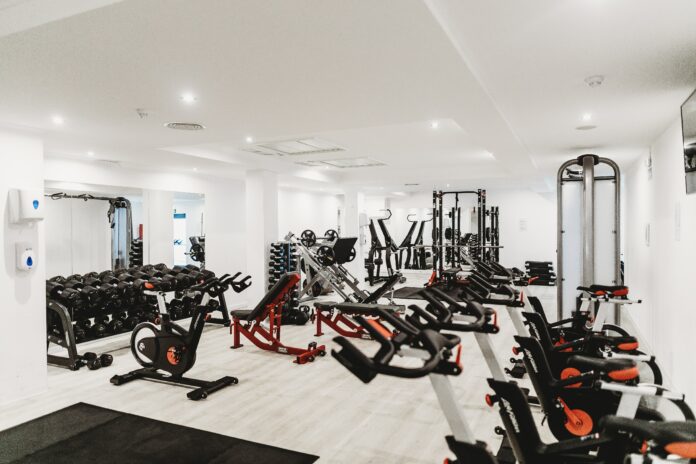After a sports session, it is essential to adopt some reflexes in order to help the body regenerate and avoid possible muscle injuries. Here are four tips for recovering well after sports training.
1. REHYDRATE WELL AFTER EXERCISE
During physical exercise, the body sweats to regulate its temperature and evacuate toxins: This is called detoxification of the body. To compensate for water loss, it is necessary to drink plenty of water during and after exercise. Rehydrating the body also helps eliminate waste (lactic acid, ammonia, urea, etc.) accumulated during exercise, compensate for mineral losses (chlorine, sodium, potassium, etc.) and promote the reconstitution of muscle glycogen reserves. Sugars stored in the muscles.
We recommend drinking, in small sips, up to 1.5 liters of alkaline water for very prolonged efforts, in the hours following sports training in order to replenish minerals and reduce the acidity of the body. The body is partly due to the accumulation of lactic acid in muscle fibers.
Be careful though, it is essential to hydrate before, during and after exercise. You should not wait until you are thirsty to drink because this is already one of the advanced signs of dehydration.
Good to know: eating fresh fruit after sport is a good way to rehydrate while stocking up on carbohydrates, minerals, antioxidants and trace elements.
In certain specific cases, for certain intense efforts and in certain climatic conditions, rehydration requires the provision of specific appropriate drinks.
Finally, these recommendations concern healthy and trained subjects and in the event of heart, kidney or thyroid failure the rehydration strategy requires monitoring and personalized advice from a treating physician.
2. STRETCH CORRECTLY AND IN MODERATION
The benefits of stretching remain a subject of controversy today.
In 2011, during a conference on the specific subject of recovery, Insee studies demonstrated that certain stretches, particularly those practiced before a sports session or those performed in the morning upon waking up, did not promote recovery muscles. On the contrary, they could be responsible for microregions and muscle inflammation.
After a sports session, it is recommended not to stretch a painful muscle and to stop stretching the muscle when pain occurs. The benefits of stretching also depend on the way in which it is performed, for example, the back must always remain straight whatever the stretch and it are recommended to focus on movement to stretch gently. Finally, it is essential to breathe well, in other words not to remain in apnea during a stretch.
3. ADOPTING GOOD FOOD REFLEXES
Immediately after exercise
In order to provide the necessary energy, the muscles used by the effort draw on their glycogen stores. After physical exercise, we recommend consuming foods rich in glucose and fructose in order to quickly “re-sweeten” the body and promote the reconstitution of the energy reserves of the muscles and the liver.
Opt for citrus fruits (orange, etc.) , grapes, a banana, a cereal bar, a piece of gingerbread… Fresh fruits are all the more recommended for their alkalizing property which promotes the elimination of acidity of the organism.
We recommend sitting down to eat two to three hours after exercise. To help the body recover well, opt for a meal adapted and composed of:
A sufficient intake of starchy foods (pasta, rice, bread, semolina, whole grains, etc.) to promote the restoration of energy stocks;
Fresh plants (raw vegetables, cooked vegetables, fresh fruit, etc.) rich in water and minerals to rehydrate the body; in antioxidants and polyphenols to fight against free radicals produced in greater quantities during exercise; and carbohydrates so that the muscles can synthesize glycogen.
Fish (tuna, salmon, mackerel, etc.) or eggs, rich in animal proteins and therefore in essential amino acids which participate in the renewal of muscle fibers. After exercise, fatty meats should be consumed in moderation because even if they are rich in animal proteins, they contain saturated fatty acids which are harmful to your health.
4. SLEEP WELL TO GET IN SHAPE
Sufficient, quality sleep is an essential factor in the body’s recovery. It is during the phases of deep slow-wave sleep that the body regenerates and muscle tissues are rebuilt thanks to growth hormones. In addition, by reducing the excitability of brain cells, deep slow-wave sleep causes muscles to relax. The latter enters a phase of inactivity, an essential stage for the regeneration of muscle cells. Finally, sleep improves and regenerates the immune system, which is beneficial for athletes since intense physical activity affects their defenses and makes them more prone to infections.
Regular sporting activity significantly improves the depth and quality of sleep. Conversely, lack of sleep harms sports performance. One does not go hand in hand, the relationship between sport and sleep constitutes a virtuous circle.
Good to know: rest is essential after a session of intense physical exercise. It is recommended not to do sports for at least a day to give the body time to eliminate toxins, replenish its energy reserves and regenerate muscle tissue.



